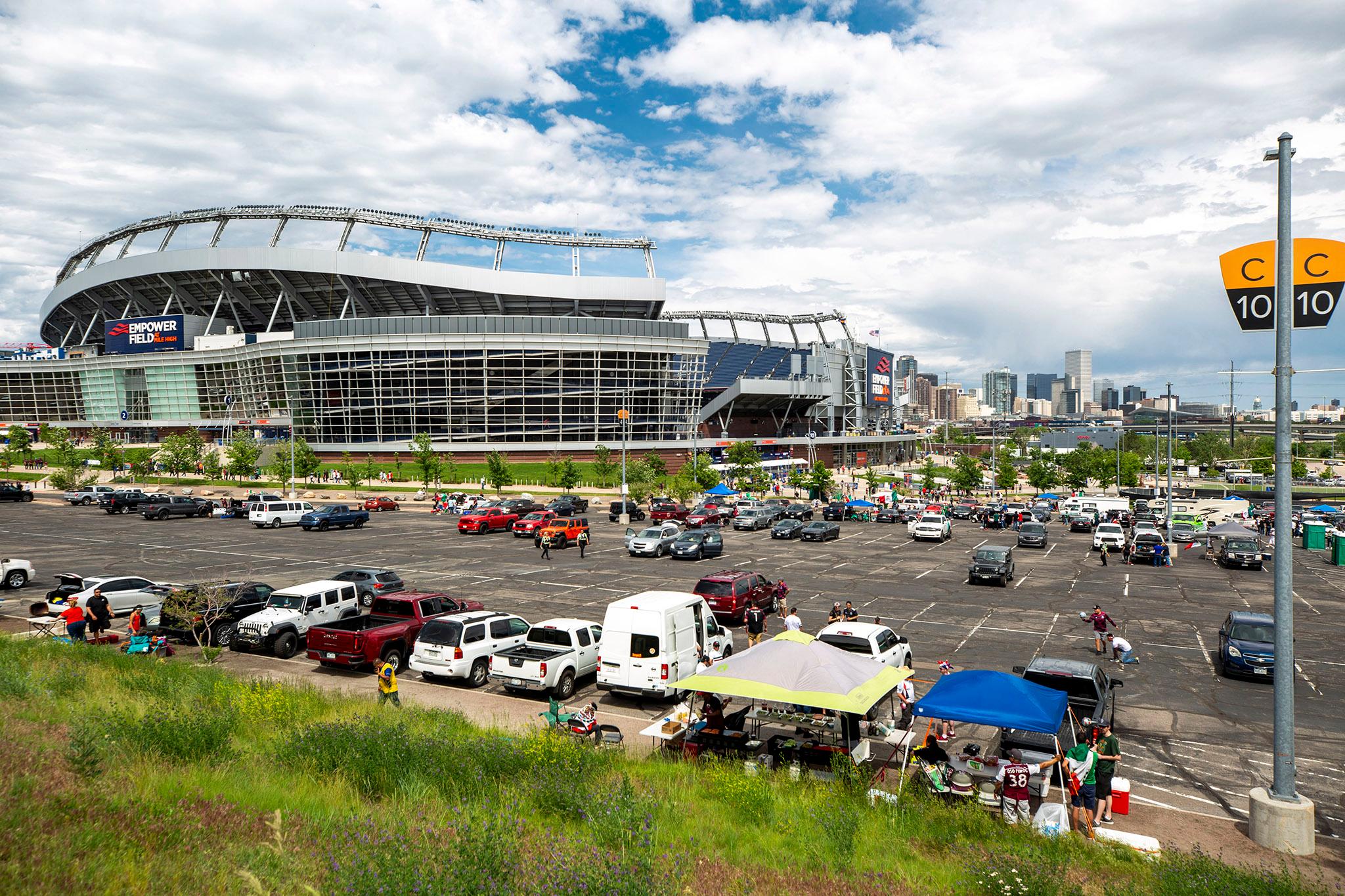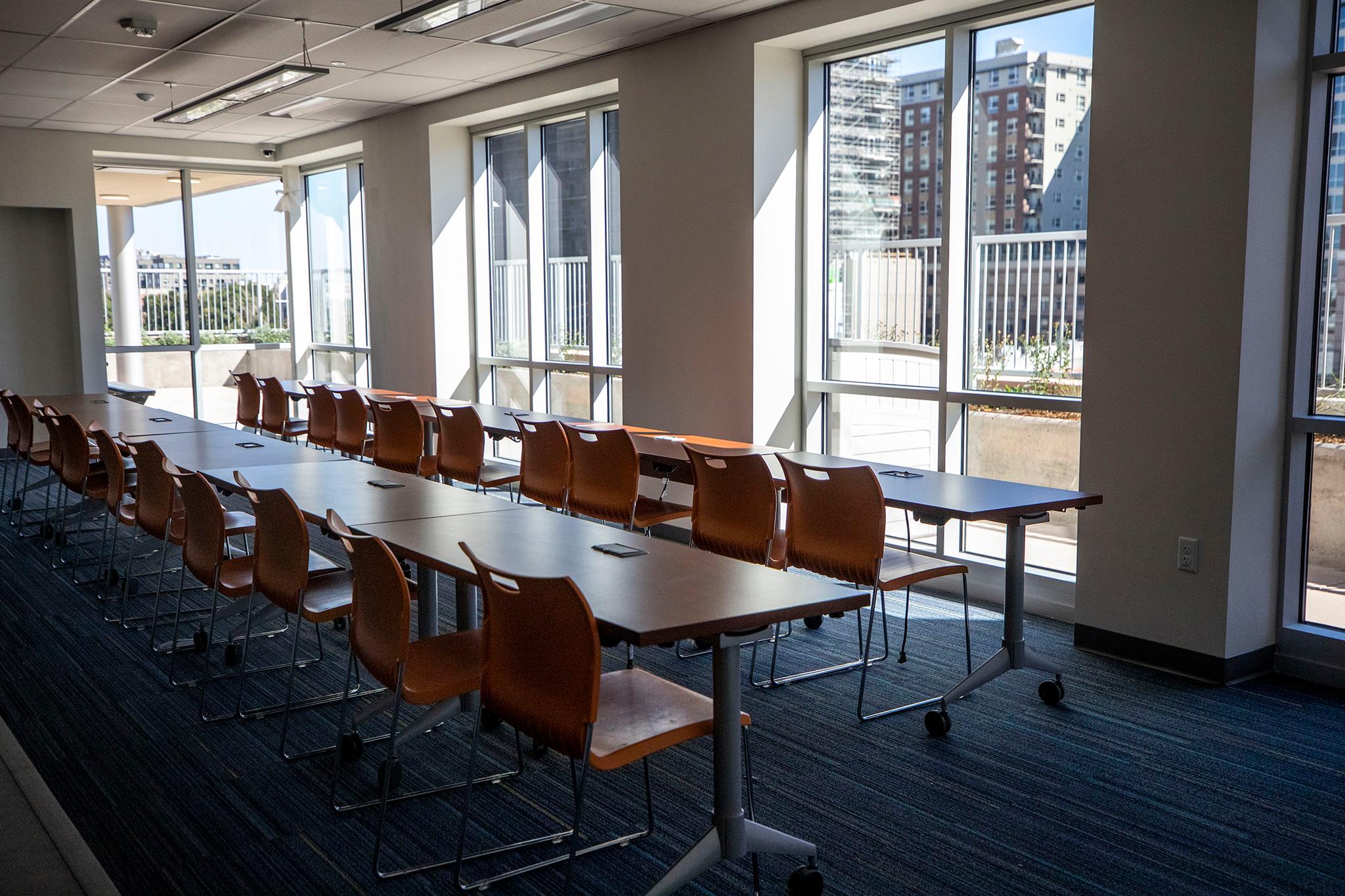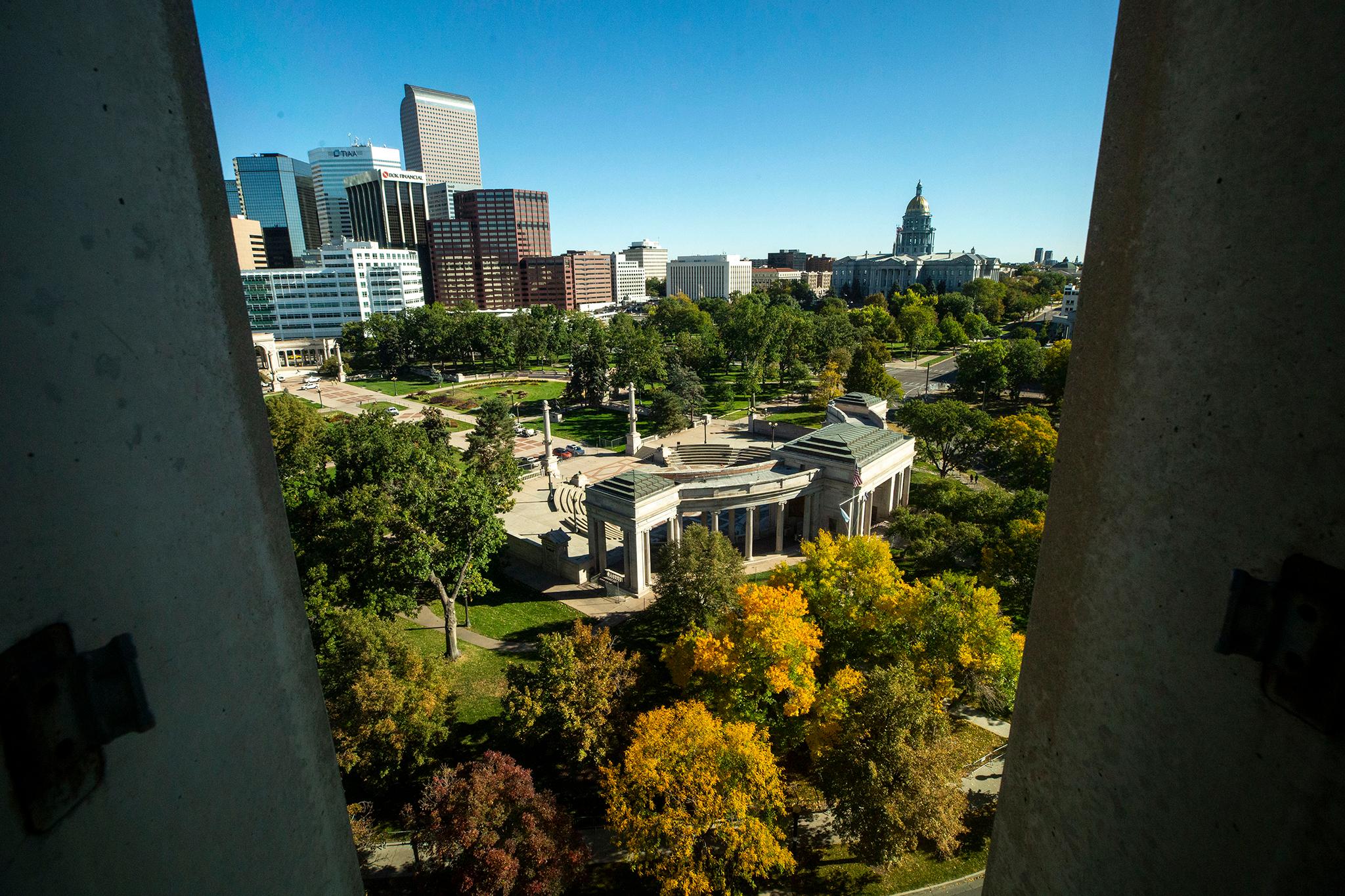Seventeen subcommittees, an army of community stakeholders and numerous consultants are in charge of leading Denver's bid to host World Cup soccer matches in 2026. Over 150 people, almost exclusively volunteers, have been involved since Denver's bid committee was established in 2019. (Disclaimer: one of the co-chairs of Denver's bid, Robert Contiguglia, is on the board of our parent organization, Colorado Public Radio.)
"We host full capacity matches in games like this all the time at Empower field, so this really just gives us a chance to invite people from all over the world to experience our city," Matthew Payne, the executive director of Denver's Sports Commission and the bid leader, said. "We've already invested so much in the city to host events like this. Now get to go out use that investment to attract one of the largest sporting events in the world."
The cost of hosting up to six World Cup games at Denver's Empower Field at Mile High is estimated at around $35 million to $55 million, but the economic boon could be ten times as much, according to bid leaders. Denver is up against 17 other American cities including Los Angeles, Boston, Houston and Philadelphia. Only 10 will be selected as hosts.
The World Cup is back in North America because of a joint bid with Canada, Mexico and the U.S. It will be in North America for the first time since the mid-'90s, now with an additional 16 teams on the roster. Visit Denver, the contractor that works with the city to bring conventions and events to the metro area, is organizing the planning process. And it's a massive one -- each city has to submit a slew of information to FIFA, including renderings of city infrastructure and stadiums and information on airports, hotels and transportation.
"There's more information that's needed just because of the magnitude of the event," Matthew Payne said. "But I think that the concept is very similar to other events that we bid on."
There are a few reasons that the selection and bidding process for the World Cup is so lengthy and complex. First, and most obviously, the sporting event is the largest in the world, with 3.5 billion worldwide viewers. City infrastructure like hotels, transportation and security needs to be able to accommodate the influx of visitors.
Second: the history of FIFA, soccer's international governing body, has thrown a shadow over continuing bid proceedings. In 2015, 14 officials were indicted on allegations of bribery and money laundering in collusion with sports marketers all over the world. The corruption scandal, which led to investigations into FIFA officials in six countries, has brought scrutiny following World Cup selection proceedings, including Russia's turn to host in 2018 and Qatar's upcoming turn in 2022. Allegations that Qatar bribed their way into the position still persist.
Now, new bids for the World Cup aim to have more transparency and equity -- The joint bid between Canada, Mexico and the U.S. for 2026 will go forth with new guidelines created in 2017 that require a more each bid include a transparent public process and a human rights committee.
"FIFA has required all big cities across Canada, the United States and Mexico to convene community stakeholders and architect human rights strategies," Anthony Graves, who sits on the human rights subcommittee, explained. "The wonderful impact of going through this process and preparing to bid for the World Cup, is we now have a set of tools and best practices that we can use for all future citywide sporting events."














